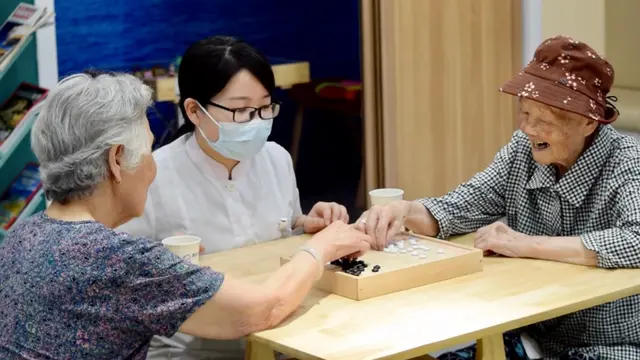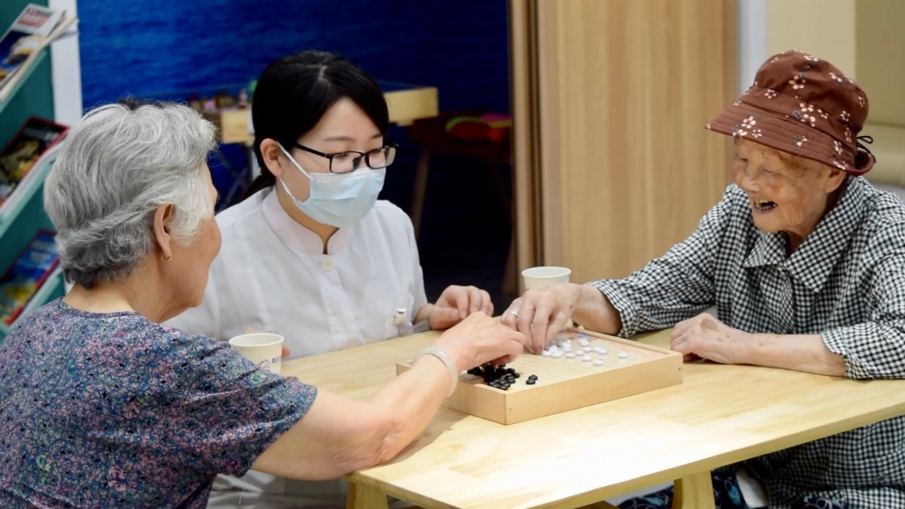
The elderly play board game in a community care center in Jiaxing, Zhejiang Province, east China. /Du Yichen
East China's Zhejiang Province has explored building more smart nursing homes this year amid efforts to cope with the rapidly aging population. The move aims to establish an integrated care system for older people to link together at-home care, nursing home care and treatment, and local governments have long been encouraged to pilot tailored care services.
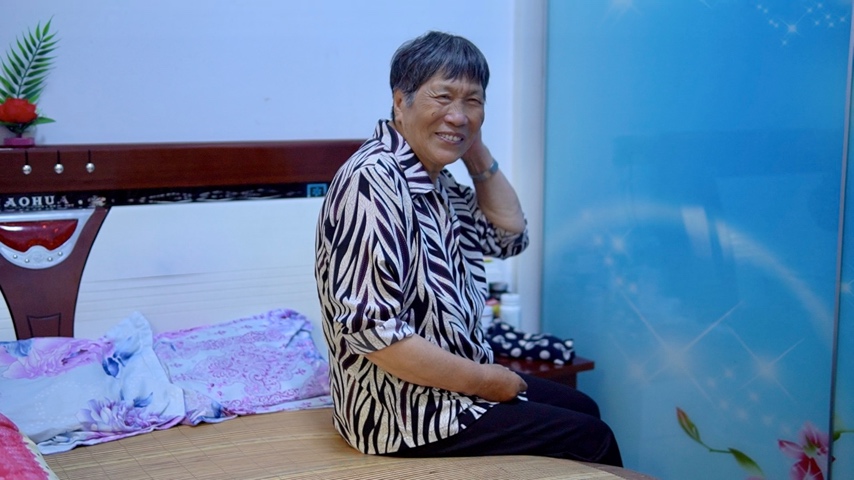
Zhao Aihua sits on her renovated smart bed. /Du Yichen
Zhao Aihua, a 69-year-oldliving in Jiaxing, east China's Zhejiang Province, has a special bed which has sensors that can measure her body metrics. Attached to the bed cover is the hub which stores and processes her sleep data including heart rate, then uploads it to the "cloud" where further analysis takes place. The health report is then pushed to her children's phones in the accompanying Xiuzhou Elderly E Home app.
Li Ning, manager of Zhejiang JEC intelligent care service, is in charge of applying elderly care technology in seniors' houses and Zhao is one of hisfirst group of users.
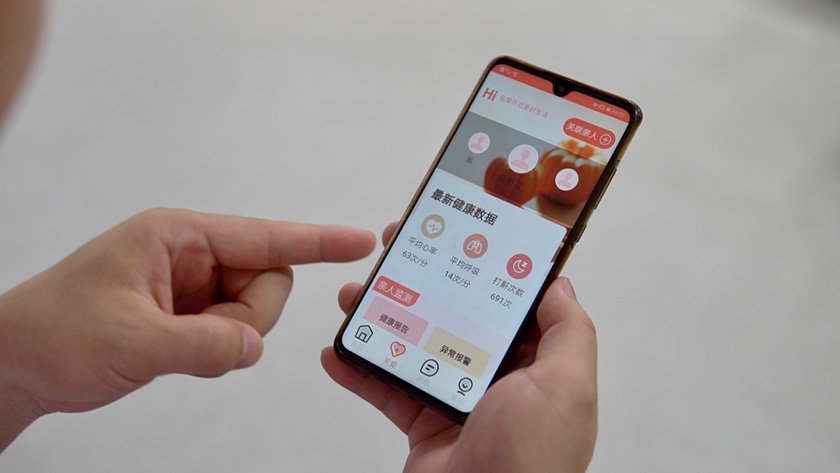
Xiuzhou Elderly E Home app shows Zhao Aihua's body metrics. /Du Yichen
"The main solution we offer is home care. When mounting smart devices, we give priority to these elderly people whose children are not often around and who have basic illnesses. Besides, considering that many elderly people are not used to a new bed, we renovated their old beds by adding the sensors only," he said.
Ageing gracefully in a digital world
With much attention paid to the digital senior living, the 14th Five-Year Plan (2021-2025) for the Development of Elderly Care Services in Zhejiang Province has promoted the construction of smart elderly care platforms.
In 2021, Xiuzhou District in Jiaxing started a pilot program in which it integrated healthcare, medical care, nursing and home care for the elderly, offering senior living and long-term care facilities. Now elderly people who want to remain in their homes for as long as they can could get help from the homes themselves.
The use of big data and platform technologies to provide personalized care have become the trend in home, community and institution integration care facilities for older people.
Virtual nursing homes, a model which pools together care resources for older people to request as needed, have been scaled and localized in many other cities across China throughout the last decade. These have recently taken on board an Internet of Things-based system for the elderly which ensures their safety, provides early warnings and personalized support to help them overcome big and small everyday problems.
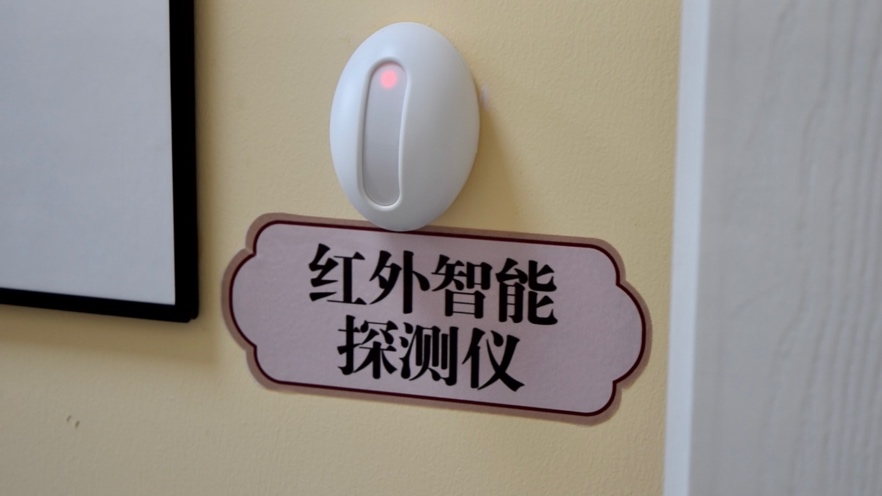
An infrared smart detector applied in an intelligent aged care center in Jiaxing, Zhejiang Province. /Du Yichen
Smart beds, emergency alarms, intelligent magnetic doors, infrared detectors, gas alarms and many other unobtrusive facilities have supplemented the smart elderly care home, so as to automatically monitor, warn and even actively deal with information related to the elderly. Additionally, the system has enabled residents to manage chronic conditions better and allowed caregivers to discover declines that could result in an acute event.
Up to mid-2021, more than 90,000 people in Xiuzhou District are 60 or older, accounting for 25 percent of the total population in the district. At present, 498 empty nests have completed the transformation into a smart home, followed by 1,000 homes by the end of August 2021.
Zhejiang Province has achieved full coverage of homecare centers for the elderly in the urban and rural communities. According to the 2020 provincial government work report, 37,000 institutional care beds were newly provided in 2019 and 350 new township homecare service centers was scheduled to be built in 2020.
By 2025, each county (city, district) in the province will build at least two smart nursing homes, among which Hangzhou and Ningbo will each build an international elderly care community. The coming versions of a smart elderly care system will include more assistance resources such as medicine delivery and regular visits, providing the smartest possible elderly care service.
(Du Yichen is a post graduate student at Communication University of China. The article reflects the author's views and not necessarily those of CGTN.)
 简体中文
简体中文

